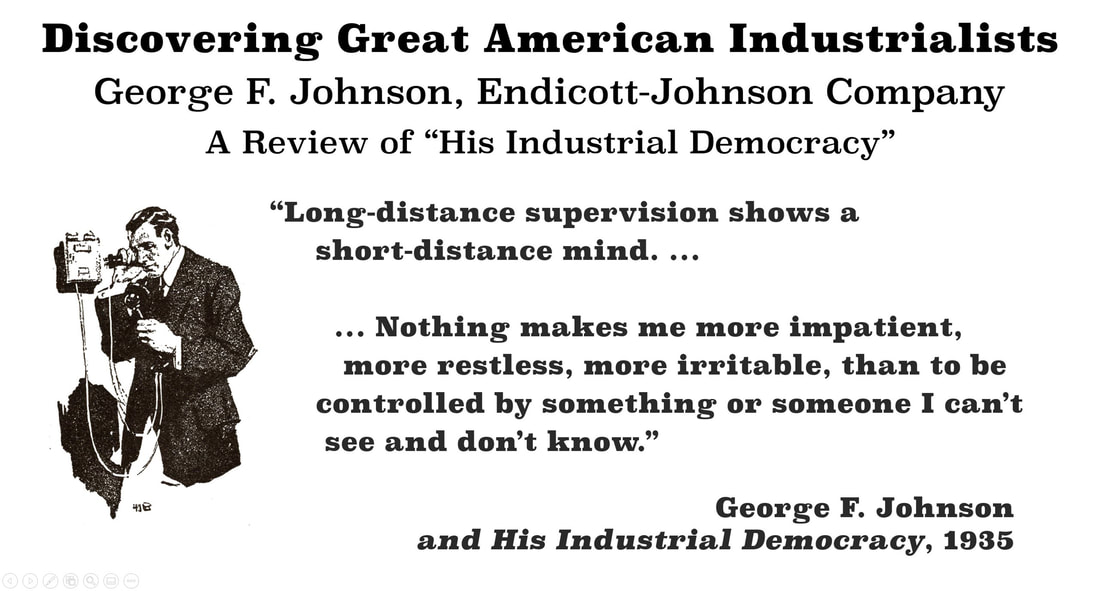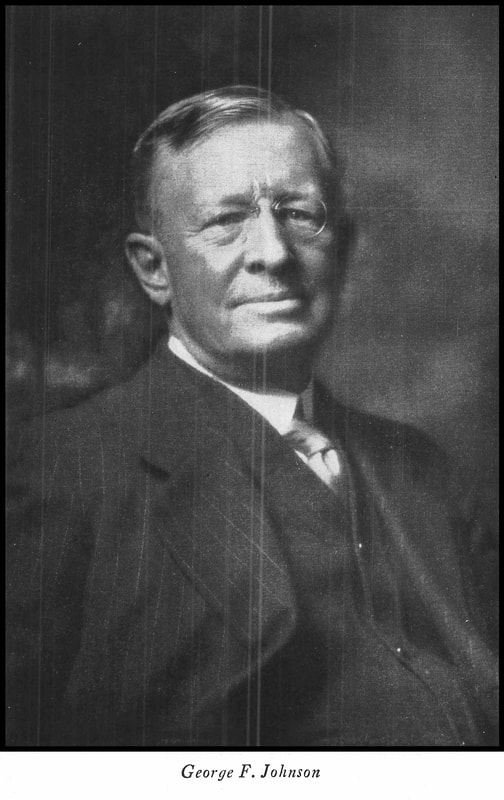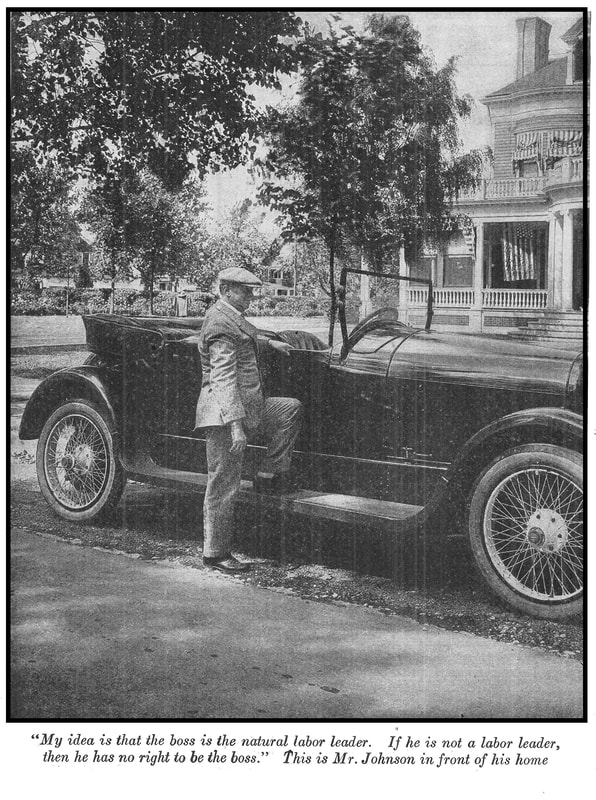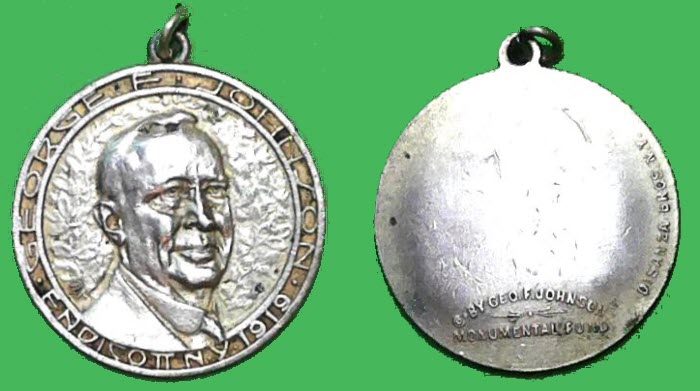A Review of "George F. Johnson and His Industrial Democracy" by William Inglis
- Reviews of the Day: 1935
- Selected Quotes from "George F. Johnson's Industrial Democracy"
- This Author’s Thoughts and Perceptions
Reviews of the Day: 1935
|
The book is somewhat amateurish, but it contains grown-up ideas.
The Booking Office, The Minneapolis Tribune, May 12, 1935
"William Inglis has compiled in an excellently bound volume from Huntington Press of New York, the story of George F. Johnson. In these days of industrial strife between capital and labor, it is refreshing to read and study a book which outlines the system so successfully developed by Johnson."
The Spokane Daily Chronicle, June 1, 1935
"If you ever go to Endicott, you will see a large stone arch built across the road that leads into the city, which reads: Home of the Square Deal. This arch was erected and paid for by Mr. Johnson's employees. No finer tribute could be paid to any man."
T. D. Kemp Jr., The Human Side, The Charlotte Observer, September 4, 1935
|
This book tells of that relationship [between employer and employee] in detail and moreover is a fine tribute to the man whose vision created a community of 19.000 persons—workers and employers—living in unity.
The Minneapolis Star, June 15, 1935
Selected Quotes from "George F. Johnson's Industrial Democracy"
|
"Every improvement and every saving we effect, is divided into three parts—the workers', the consumers', and the company's. That is one of the best ways to make a business successful and keep it so. ... So long as we play fair with all three parties in the business, we can be reasonably hopeful of prosperity."
"We've got to make all we can of this concern, not try to take all we can out of it."
"Things which come to the lives of humans in the process of evolution are not necessarily retroactive. We all suffer more or less from injustice. We are generally satisfied when the remedy has been applied and justice becomes our portion. We are not, as a rule, prone to ask readjustment of past omissions."
"I don't believe that any man can own a business. It belongs to the customers, to the workers, to the community, to the public. A business cannot be left to incompetent heirs with extravagant ideas of living. You owe to everybody, and to the workers most, to give yourself to it [the business] and to arrange as far as possible that the future shall hold the same sort of constructive relationship."
|
This Author's Thoughts and Perceptions
In 1940, B. C. Forbes asked in his column the following rhetorical questions:
The editor of Forbes asked the right questions eight decades ago, and, at the time, he recognized three men as having found the right answers: George F. Johnson of Endicott Johnson Corporation, George M. Verity of American Rolling Mill Company, and Thomas J. Watson Sr. of International Business Machines Corporation. [See Footnote #1]
- What does it profit a man [or woman] to gain the whole world and lose his [her] own soul?
- What does it profit a corporation to expand and expand if meanwhile it neglects to win the esteem of its employees?
The editor of Forbes asked the right questions eight decades ago, and, at the time, he recognized three men as having found the right answers: George F. Johnson of Endicott Johnson Corporation, George M. Verity of American Rolling Mill Company, and Thomas J. Watson Sr. of International Business Machines Corporation. [See Footnote #1]
|
George F. Johnson and his Industrial Democracy by William Inglis was published in 1935. It will help an IBM researcher understand where Tom Watson Sr. captured some of his earliest thoughts on how to treat workers. George F., as he was called by his employees, was of the same mold as Watson Sr. He was Christian, believed in the Golden Rule, ran his business to benefit his workers, paid the highest wages in the shoe industry of his time, vertically integrated his business within his industry, and was proud of his record.
|
1919 Medallion in Memory of George F. Johnson.
|
Watson Sr. often referred to George F. as a friend. There are some amazing quotes in this book considering the day, such as "wages alone, no matter how fair, how liberal, won't do it. The chief executive must win worker trust and confidence."
I particularly like this spin of George F.'s on labor leadership.
I particularly like this spin of George F.'s on labor leadership.
"My idea is that the boss is the natural labor leader. If he is not a labor leader, then he has no right to be the boss."
George F. Johnson, System, The Magazine of Business, 1920
Amen, George!
Cheers,
- Pete
Cheers,
- Pete
[Footnote #1] B. C. Forbes, Business and Finance, The San Francisco Examiner, August 5, 1940, p. 13



